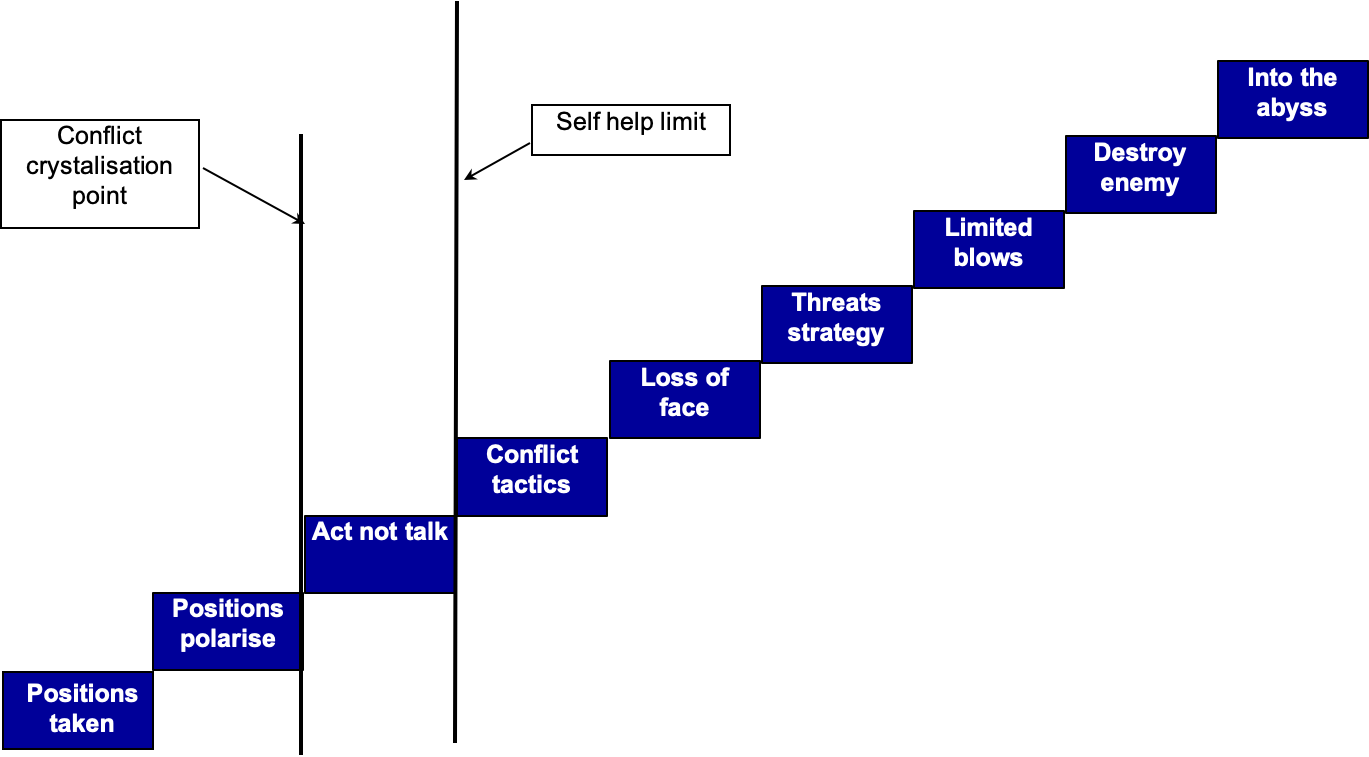In the 1930’s anthropologist Gregory Bateson developed the concept of Schismogenesis – the creation of division. He defined this as ‘a process of differentiation in the norms of individual behaviour resulting from cumulative interaction between individuals’, or groups of individuals. A process of this sort can result in individuals or groups drifting apart, almost becoming mirror images of each other – where identity can become defined as much by what they’re not as what they are.
This can perhaps be seen in political divisions today where identity rather than ideas or policies becomes the key feature of the divide as polities polarise. What starts out as different views on a specific issues can evolve into being more about how people see themselves and others. Brexit may be a case in point in the UK, while in the US attitudes to issues like guns and abortion now appear to be more about how people identify themselves, particularly in comparison with others. Mediators will recognise the similarities to the transformation of interests into positions, which only harden, sometimes in reaction to what the ‘other side’ says or does.
Environmental factors also play a part, for example in today’s world social media can be used to create and amplify divisions while also offering an opportunity and a tool for those who would seek to divide and weaken societies.
The process of schismogenesis can be seen in many dimensions of human society. In Graebner and Wengrow’s recent book it is cited as a factor which can help explain why societies living in relatively close proximity to each other developed in very different ways. It can also be seen in religious division, where different beliefs and rituals assume great, and often deadly significance. Division is rife within academic disciplines as conflicting positions often assume almost religious significance. As an aside, in the days when passports included occupations I was once surprised by a border official asking me if I was Keynesian or Monetarist as I arrived bleary eyed on an early morning flight!
One of the fascinating aspects of Bateson’s concept is the cumulative nature of the process of division, in which differences accumulate and build on each other. This is similar to Fredrich Glasl’s analysis of how conflict evolves and deepens (see illustration). It can also be seen in other social and economic process such as Gunnar Myrdal’s ‘circular and cumulative causation’ in which levels of progress in different places or among different groups widen as vicious and virtuous circles of development are established.

What is of particular interest from a mediator’s perspective is that once cumulative processes become well established it is very difficult to break into them and tackle them from within. To reverse Myrdal’s process usually requires some exogenous change or investment. While in Glasl’s nine stage model of conflict evolution, he considers self-help almost impossible once matters advance beyond the third stage.
External forces or threats may also help bring a polarised society together as they can provide a context for helping people realise there is more that unites them than divides them. Initially Covid appeared to be a uniting force until the perception of threat (to either freedom or health) came to be seen as more about the behaviour of others from within and identities hardened around vaccines and masks.
The external dimension is where a mediator or third-sider can add real value in helping reverse the escalation process. This might involve helping parties to a dispute to look at things from a fresh perspective. Initially perhaps helping them see themselves as joint problem solvers rather than antagonists. Then by helping them build an understanding of each other’s different needs and interests and identify where value lies given these interests. Before helping them to maximise what’s available and divide it in a way which best meets their respective needs.
________________________
To make sure you do not miss out on regular updates from the Kluwer Mediation Blog, please subscribe here.



The timing of this post is perfect. What a useful lens through which to analyse and reflect on the forces unleashed in our world right now. Thank you for provoking and informing my thinking yet again.
Many thanks Rosemary